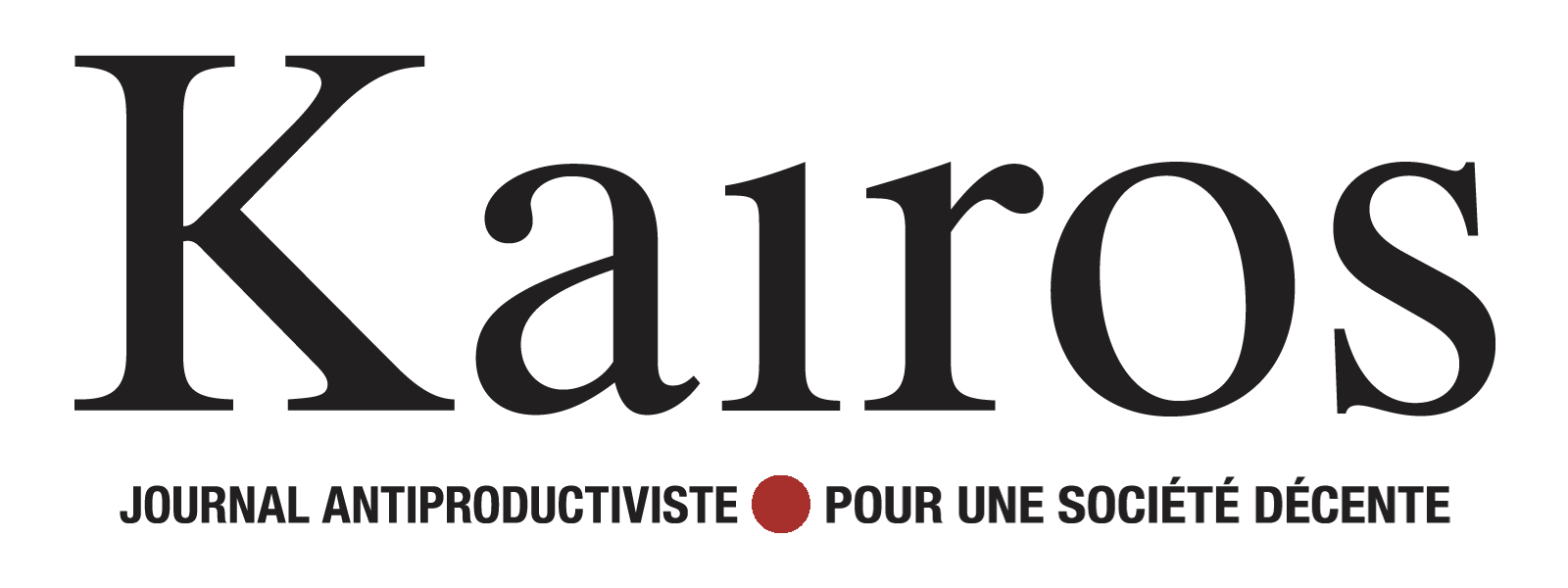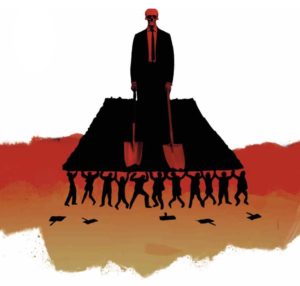Publié en ligne sur le site de De andere krant, Pays-Bas, 9 juillet 2022.(1)
Pas beaucoup de bruit dans les médias du pouvoir autour de ce qu’il se passe en Hollande. Normal, les agriculteurs se révoltent contre les plans du Forum économique mondial que leur gouvernement met en place docilement. Sous prétexte de l’augmentation de la population et de la nécessité de nourrir 10 milliards de personnes bientôt, l’agriculture 2.0 est prisée, au détriment de la traditionnelle, celle où l’on met encore ses mains dans la terre. Un article de nos collègues hollandais, avec leur aimable accord de le reproduire ici.
Le gouvernement néerlandais travaille en étroite collaboration avec le Forum économique mondial (WEF) pour réformer radicalement le secteur alimentaire. Les Pays-Bas sont l’araignée dans la toile d’une chaîne alimentaire mondiale qui n’a pas encore été formée, qui est contrôlée par les soi-disant WEF Food Innovation Hubs. Le siège social est situé à Wageningen. Le rôle de l’agriculteur traditionnel dans les plans du WEF est marginal.
Le WEF, le club d’élite des multinationales et des dirigeants politiques basé à Davos, a établi des pôles d’innovation alimentaire dans le monde entier. « Des plateformes de partenariat multipartites basées sur le marché visant à renforcer les écosystèmes d’innovation locaux », c’est ainsi que le WEF les décrit. Ils doivent s’assurer que la chaîne alimentaire est préparée pour l’avenir.
Selon le WEF, une réforme radicale du système alimentaire est nécessaire pour qu’il n’y ait plus de faim dans le monde d’ici 2030. Il reste encore du chemin à parcourir, car à l’heure actuelle « près de deux milliards de personnes n’ont pas accès à une alimentation saine, nutritive et adéquate et 690 millions de personnes meurent de faim ».
Pour résoudre le problème, un « plan global » a été mis en place en 2020 – hors parlement. Les Pays-Bas y jouent un rôle de premier plan. Le European Food Innovation Hub du WEF et même le secrétariat mondial des Hubs sont situés à Wageningen. Le WEF travaille en collaboration avec l’Université de Wageningen (WUR) et avec la plateforme d’innovation alimentaire Food Valley NL sponsorisée par la province de Gelderland. Le plan laisse peu de place aux agriculteurs traditionnels. Le WEF se concentre principalement sur les partenariats public-privé avec les grandes entreprises. Food Valley NL en est un bon exemple : elle est financée par la province de Gelderland, est présidée par l’ancienne ministre Edith Schippers (VVD) — qui est également présidente de la multinationale alimentaire DSM — et compte des entreprises telles que Jumbo, Aldi, HAK, Rabobank et DSM comme membres. « Le rôle des entreprises du secteur alimentaire doit être stimulé pour créer des solutions évolutives », a déclaré le Premier ministre Rutte lors d’une réunion Zoom du WEF l’année dernière.
Rutte a fait sa déclaration lors d’une réunion Zoom avec le titre révélateur « Transformer les systèmes alimentaires et l’utilisation des terres », où il a déclaré que le secrétariat mondial des pôles alimentaires avait été attribué à notre pays par le WEF, après que les Pays-Bas aient déjà été désignés comme le quartier général des pays européens. La coordination est entre les mains de l’Université de Wageningen.
Parce que la plupart des médias rapportent peu ou rien sur le plan du WEF — même maintenant que le débat entre les agriculteurs et les politiques est devenu houleux —, il semble que ce ne soit pas la réalité, ou tout au plus une théorie du complot. Cependant, l’engagement envers le plan et les objectifs dirigés par le WEF a déjà été ouvertement proclamé par l’ancienne ministre de l’Agriculture Carola Schouten, ainsi que par le Premier ministre lui-même. Les accords sur les Food Hubs sont même scellés dans des contrats juridiquement contraignants, comme l’a montré le Forum pour la démocratie l’année dernière après des questions parlementaires à Schouten. Lors de réunions avec le WEF, Rutte lui-même a laissé entendre que la transformation de la chaîne alimentaire battait son plein. « Les World Economic Food Innovation Hubs permettent de connecter les actionnaires régionaux (ce que le WEF appelle les soi-disant parties prenantes, ndlr) pour intensifier les innovations », a déclaré Rutte. Il est remarquable que de nombreuses entreprises du secteur industriel et technologique en particulier apportent une contribution majeure aux plans de réforme du secteur alimentaire.
Le gouvernement et le WEF disent qu’il faut produire plus de nourriture, car « la croissance attendue de la population mondiale (à 10 milliards en 2050, ndlr) et les conséquences de la crise climatique ne font qu’accroître l’urgence de l’insécurité alimentaire actuelle », comme indiqué dans un article du gouvernement l’année dernière. Pourquoi alors chasser ces agriculteurs de la terre, comme le fait maintenant ouvertement le gouvernement néerlandais ? Plus de nourriture sur moins de terres agricoles, est-ce possible ? Oui, on a pensé à quelque chose : l’agriculture verticale, c’est-à-dire l’agriculture qui monte. « Agriculture verticale. Est-ce l’avenir de l’agriculture ? », le WEF pose une question rhétorique. Une vidéo montre comment la start-up danoise Nordic Harvest à Copenhague a aménagé un entrepôt de 75.000 mètres carrés de manière à ce que les aliments puissent être cultivés en quatorze couches empilées les unes sur les autres. Des points forts technologiques tels que l’éclairage LED, les mécanismes rotatifs et l’arrosage avec des capteurs garantissent que les cultures poussent dans « les conditions parfaites ».
« Notre productivité est extrêmement élevée et nous laissons une petite empreinte », a déclaré David Rosenberg, PDG d’Aerofarming, qui qualifie son entreprise de croisement entre une entreprise agricole et une entreprise technologique. « Nos cultures poussent — de la graine à la récolte — en quinze jours. Cela prend 30 à 45 jours dans une serre ou dans un champ ». L’entreprise — qui s’occupe également de la modification génétique des semences à l’aide de la technique CRISPR — affirme qu’il faut 95% d’eau en moins que sur une ferme et qu’elle peut produire 390 fois plus de cultures par mètre carré et même que la nourriture est plus saine que dans une ferme saine (bien que beaucoup de sceptiques contestent cela). Si ce phénomène se répand dans le monde, il faudra beaucoup moins de terres agricoles. En fait, il faudra beaucoup moins d’agriculteurs. Nul autre que Bill Gates a injecté 50 millions de dollars dans l’entreprise pour des robots agricoles capables de faire le travail beaucoup plus rapidement.
Bien que le WEF et le gouvernement affirment toujours que les agriculteurs continueront à jouer un rôle important dans l’approvisionnement alimentaire à l’avenir, cela semble être une stratégie pour garder les gens calmes le plus longtemps possible. Il semble que seules les parties qui souhaitent adopter les innovations du Food Hub joueront un rôle dans la chaîne alimentaire du futur. En général, le secteur agricole est à la traîne, selon le WEF. « Les innovations qui peuvent aider à transformer nos systèmes alimentaires sont souvent déjà là. Malheureusement, l’adoption et la mise à l’échelle des innovations dans le secteur agroalimentaire sont à la traîne par rapport aux autres secteurs ».
Le ministre de l’azote Van der Wal, Picnic et Bill Gates
Les lignes avec l’élite dirigeante mondialiste ne sont pas seulement courtes du côté de la production de la chaîne alimentaire, il y a aussi un (apparent) conflit d’intérêts du côté de la distribution. Il s’avère que le beau-frère de la ministre de l’azote Christianne van der Wal (VVD) — Bouke van der Wal — est le propriétaire de Picnic. Bill Gates a investi l’an dernier 600 millions d’euros dans ce supermarché en ligne. Il a déclaré qu’il souhaitait que les pays riches « passent à 100% à la consommation de viandes synthétiques pour aider à lutter contre le changement climatique ». Ce phénomène est tout à fait conforme à une autre idée d’innovation alimentaire promue par le WEF : la « viande » imprimée en 3D.
Ido Dijkstra
Traduction : Bernard Legros





